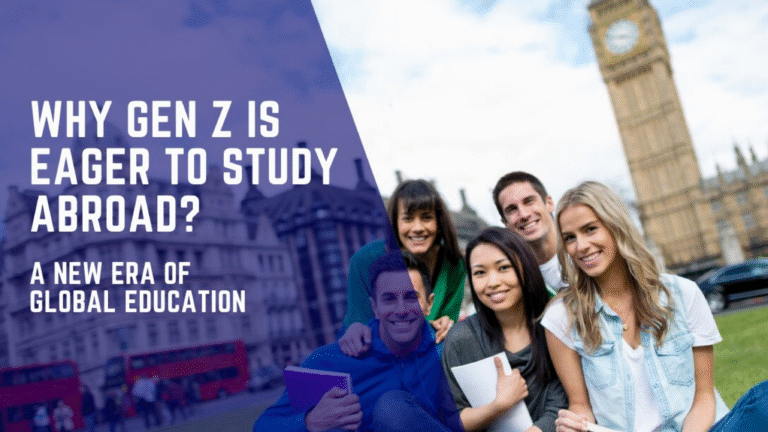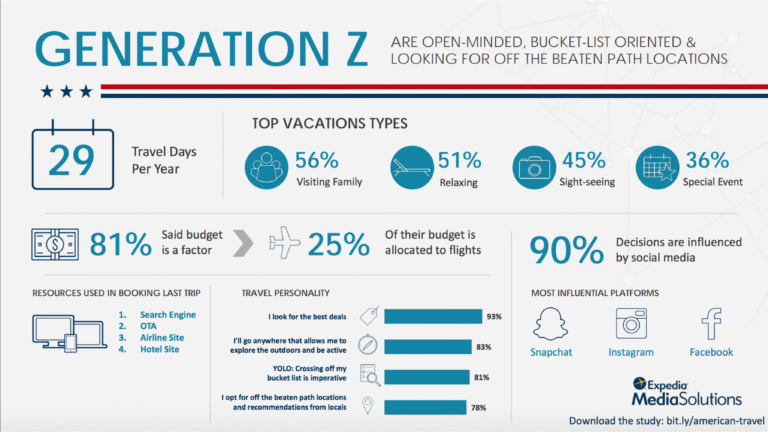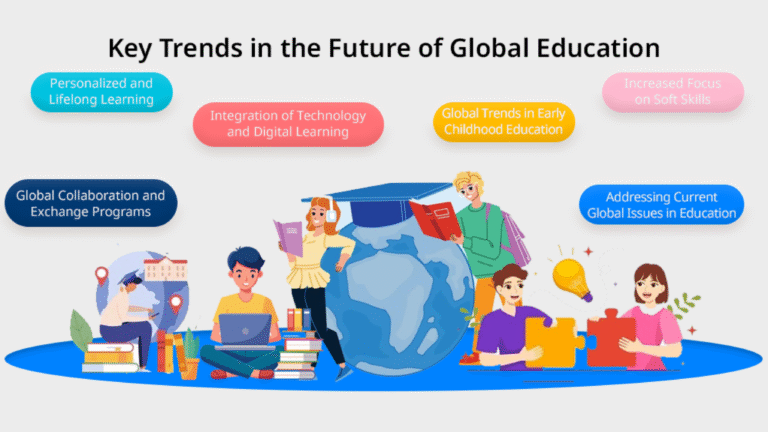Study Abroad Consultants In Delhi
How Gen Z Is Shaping the Future of Study Abroad

A shift is taking place on a global scale in education influenced by generations. That view the world differently than any previous generations. Gen Z, born roughly from 1997-2012, is redefining the way young people view higher education and the experiences of being educated in a foreign country. Unlike previous generations, Gen Z students are not only driven by having academic credentials. But consider learning by experience, being immersed in a culture, personal development, readiness for careers, and social impact in their decision to go abroad to study.
The habits and preferences of Gen Z are forcing universities and other entities to reconsider study abroad programming, support services, and engagement methods. Whether it’s through technology-enhanced learning, environmental sustainability, mental wellbeing, or career-aligned curricula. Gen Z is establishing new definitions of what it means to study abroad in the 21st century. This blog will examine how Gen Z is driving new trends in study abroad, what is contributing to their choices, and how universities can adapt to meet the expectations of this new generation of study abroad students.
Understanding Gen Z: A Generation with a Global Perspective
Generation Z represents the first cohort to be raised in the digital era. The use of smartphones, social networks, and instant access to information is part of their everyday experiences. This experience has provided them with a worldview that is fundamentally global. Whereas Millennials experienced the transition from analog to digital, Generation Z has always lived with connectivity and access to information at their fingertips.
This experience has positioned them to view education differently. Generation Z values authenticity, inclusivity, and experiences that prepare them for the real world. Generation Z does not see education merely as a medium for acquiring knowledge but also as a medium for personal development, building a career, and engaging with the world in a meaningful way.
Moreover, Gen Z’s awareness of global issues like climate change, social inequality, and technological disruption, has intensified. Their commitment to contributing to society alongside developing themselves personally and professionally. International education complements this, as it provides opportunities to gain these experiences while building a network of colleagues across the globe, and provides exposure to cross-cultural communication.
Why Gen Z Is Choosing to Study Abroad

The decision to study abroad for Gen Z goes far beyond obtaining a prestigious degree. There are several unique motivations behind their choices:
1. Exposure to Diverse Cultures and Global Opportunities
Cultural immersion is paramount for Gen Z. By studying abroad, they will interact with different students, learn new perspectives, and develop a global perspective beyond the classroom walls. Cultural immersion is deeper than seeing the sights or having a surface-based cultural experience. It is understanding the language, customs, and social norms of another society.
Programs that offer internships, collaborative research, or volunteer work in international contexts are particularly attractive to Gen Z students. Engaging in these experiences allows students to gain invaluable practical skills while opening a door to a world of global opportunities. After their education – thus providing both meaning and marketplace viability in their education.
To better understand how today’s students make international education choices, check out our blog on Best Study Abroad Consultants in Delhi
2. Focus on Career Readiness
Members of Generation Z are realistic about their education; they want programs that are practical, focusing on skills relevant to employment and professional practice, and which will lead to career opportunities. They are particularly interested in internships, projects with industry partners, or mentoring from companies established abroad.
A Gen Z student who selects a business program in Europe, for example, will evaluate the academic reputation of the university. What kinds of internships the university will provide with multinational companies or start-ups. Crucially, the return on investment (ROI) for their education, in terms of job and life opportunities, is critical to Gen Z.
3. Personal Development and Independence
By going overseas, Gen Z students have a platform for self-discovery. Living abroad promotes the development of adaptability, independence, resilience, and problem-solving. Gen Z understands that these qualities are critical in today’s rapidly changing work environment.
Experiencing diverse education systems, working with peers from various cultures, and learning culturally-specific behavioral norms contributes to their personal growth and professional capabilities. Generation Z is deliberate about choosing programs that are meaningful to them, even if they challenge their long-term learning skills.
Gen Z’s Expectations from Study Abroad Programs
Gen Z preferences are shaping how universities design study abroad programs. Understanding their expectations is crucial to attracting and retaining students from this generation.

Technology-Driven Learning
As authentic digital natives, Generation Z anticipates the smooth integration of technology into their academic experience. Online spaces, AI-based learning environments, virtual labs, and digital classrooms are no longer optional; they are mandatory.
Gen Z learners strongly favor universities that offer immersive online modules, virtual labs, and AI-enabled tutoring. They also value digital resources that connect them with peers, provide cultural acclimation, and deliver career development before they step onto campus.
Sustainability and Social Responsibility
Generation Z is notably socially aware. They consider climate change, environmental sustainability, and ethical considerations in their decision-making in education. Study abroad programs that incorporate sustainability initiatives within academics, operations, and social impact are therefore appealing.
By way of example, universities that advance a green campus, offer eco-conscious living opportunities, or coordinate volunteer efforts with local non-profits appeal to this generation. For Generation Z sustainability is more than a preference—it’s often a deciding factor.
A survey by QS International Student Survey highlights how Gen Z students value career outcomes and flexibility when considering study abroad programs.
Flexibility and Personalization
Gen Z is not drawn to rigid programs with a set of curriculum. Instead, they prefer learning pathways that enable them to explore subjects within multiple disciplines and relevance to their career aspirations.
Short-term study abroad modules, exposed exchanges, or hybrid learning models allow students to customize their experience, but flexibility also includes living arrangements, internships, and activities outside of the classroom, which allows Gen Z students to balance academic pursuits, personal enlightenment, and cultural exploration.
How Gen Z Uses Technology to Choose Study Abroad Destinations

Technology increasingly plays an important role in how Gen Z chooses study abroad programs. Starting with their research and continuing through their decision-making process, they are digital-first:
Social media impact: Social media platforms like Instagram, TikTok, and YouTube enable. Gen Z to see photos and videos of campus life, cities around the world, and student testimonials. This type of authentic content posted by their peers often matters more than traditional marketing by the university.
Online communities: Discussions in forums, social media groups, and student networks provide options for geting advice, sharing experiences, and checking their choices.
Virtual experiences: VR campus tours, webinars, and experiencing meeting with virtual students allows. Gen Z to experience some of the program remotely before committing.
Universities that offer and engage an authentic and transparent digital footprint are more likely to attract Gen Z students. The combination of a strong online reputation, and digital outreach willingness has contributed greatly to the student recruitment ecosystem.
The Role of Mental Health and Wellbeing in Gen Z’s Study Abroad Choices
One of the top priorities for Gen Z is mental health. Compared to prior generations, Gen Z appears to be more attuned to their stress, anxiety, and navigating the transition to new contexts. Programs that provide strong mental health support, counseling, and wellbeing resources are therefore more appealing to students in this generation.
Gen Z places value on programs which incorporate mindfulness, stress management, and social support networks. Universities that offer peer support, access to counselors, and initiatives that encourage mental wellbeing are increasingly being prioritized.
Additionally, a focus on mental wellbeing aligns with the broader values of Gen Z, including balance, self-care and holistic personal development, and is therefore a significant consideration in study abroad program development.
Financial Considerations and Value for Money
Although Gen Z is willing to make an investment in quality education, they are financially literate and seek value in their investment choices. They will consider applicable scholarships, grants as well as flexible payment options and part-time job opportunities.
Gen Z takes a deep dive into the overall cost of education such as tuition, accommodation, living expenses, and the potential salary to be earned after graduation. They are attracted to any programs that have published costs and provide a clear return on investment (ROI).
The financial literacy is ingrained into Gen Z’s belief system by the time they are considering a study abroad program. Before committing to study abroad programs the Gen Z student will conduct research about funding opportunities, student loan potential, and possible post-graduation salaries. Universities that provide clear options and support in financial considerations will have an advantage in converting Gen Z students into enrollments.
Gen Z’s Impact on University Policies and Global Education Trends

The emergence of Gen Z has challenged universities to reshape their policies, curriculums, and student engagement. Some of these include:
Soft Skills Development: Integrating lifelong skills involving articulation, teamwork, problem-solving. Cultural intelligence within the curriculum to equip the students with professional and global competencies.
Short-Term Modular Programs: Flexible treatment options tied to career goals and international exposure are fast becoming the norm.
Sustainable Campus Initiatives: Greening initiatives, eco-friendly facilities, and sustainable-focused programs have begun to permeate universities.
Digital Transformation in Administration: Streamlined online applications, virtual orientations, and AI-aided academic support enhance the overall student campus experience.
Gen Z is affecting both the study abroad paradigm and how universities operate, interact with students, and prepare them for the global workforce.
Career Outcomes and Gen Z’s ROI Mindset
Job prospects are a key priority for Generation Z. Their evaluation of studying abroad programs (and their sustainability and interest in attending them) will be based on factors. Such as employability, skills learned, opportunities to create and maintain social networks with people from different cultures and backgrounds. Their influence on international job development. Universities that can provide access to programs that include mentoring of students, alumni connections, placements and internships, etc., will undoubtedly have a competitive advantage.
Programs that include real-world experience and career services support (post-graduation) are naturally appealing to Gen Z’s return on investment (ROI) mentality. By aligning educational offerings with the notion of “creating career opportunities,” universities and colleges can meet Generation Z expectations while remaining relevant amid global education market dynamics dictated by competition.
The Social and Cultural Influence of Gen Z Abroad
Generation Z is changing the cultural and social narratives associated with studying abroad. Their values around the study abroad experience are inclusivity, diversity, and participatory cultural engagement.
Cultural Immersion Opportunities: Generation Z are seeking authentic experiences. They want to engage with local communities, practice their language skills, and engage in local social projects instead of focusing primarily on sightseeing.
Peer Networking and Collaborative Learning: A major aspect of their study abroad experience is collaborating with international peers, working on global projects, and forming networks around their projects or shared interests.
Inclusivity and Representation: Generation Z’s values around study abroad support programs that provide gender equality, multiculturalism, and representation of marginalized groups.
By relying on social responsibility and cultural engagement, universities can attract students interested in making an impact while studying globally.
The Future of Study Abroad in a Gen Z-Driven World
With Gen Z taking over as the largest demographic of international students, study abroad programs will continue to adapt. The following are some of the predicted future trends for study abroad programs:
Technology Experience with Experiential Learning: Virtual reality, artificial intelligence (AI), and online collaborative learning will support the classroom-based experience.
Sustainable and Responsible Programs: Environmental and impact will be a central pillar of study abroad programs.
Personalized and Flexible Learning Paths: Interdisciplinary courses, hybrid learning formats, and customized experiences will become commonplace.
Appropriate Support Systems: Mental health, career-ready interventions, and building community will be necessary support systems.
Increased Industry Linkages: There will be more partnerships with global companies offering industry experience, mentorship, and possible employment opportunities.
As Gen Z continues to influence global education, innovation, flexibility, and social connection will be embedded into international experiential learning.

Ready to explore your study abroad journey? Click below to start today!
Conclusion: Embracing Gen Z to Transform Global Education
Gen Z is not just influencing the future of study abroad; they are actively shaping it. With their focus on technology, sustainability, personal growth, mental wellbeing, and career readiness, this generation is changing the face of international education.
For universities, addressing Gen Z’s expectations is no longer a choice; it is a necessity. Programs that support flexibility, innovation, inclusivity, and actionable results will engage and keep global learners.
The future of study abroad will be a more dynamic, personalized, and impactful opportunity than ever before, thanks to the particular lens through which Gen Z students experience the world. If institutions evaluate and respond to students’ needs, studying abroad continues to be a transformative opportunity for generations to come.
